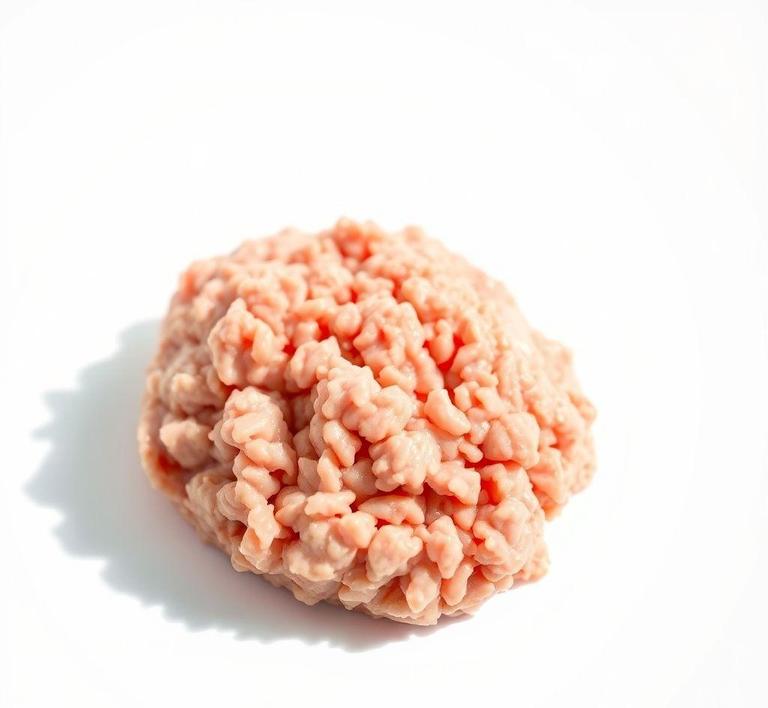So, you’ve got some uncooked ground turkey in the fridge that you didn’t end up using, and now you’re wondering if it’s okay to pop it back in the freezer? Well, you’re not alone! The good news is that, yes, you can refreeze uncooked ground turkey, but there are some important things to keep in mind to ensure it’s still safe to eat. Freezing and thawing meat does affect its texture and quality, but as long as you handle it properly and follow food safety guidelines, you can save it for later without any issues. Let’s dive into how to do it the right way, so you don’t end up with turkey that’s too tough or unsafe to eat!
Can You Refreeze Uncooked Ground Turkey?

Yes, you can refreeze uncooked ground turkey – but only under specific conditions. The key factor is whether the turkey was thawed safely in the first place. If your ground turkey was thawed in the refrigerator and has remained at a consistent temperature of 40°F (4°C) or below, it can be safely refrozen. However, if it was thawed at room temperature, such as on the kitchen counter, or in warm water, it is no longer safe to refreeze. Bacteria multiply rapidly between 40°F and 140°F, so any exposure to this ‘danger zone’ compromises both the safety and quality of the meat.
So, in short: Yes, refreezing is safe – but only if the turkey was thawed in the fridge and has not been left out for more than two hours.
How To Refreeze Uncooked Ground Turkey?
Refreezing raw ground turkey is a simple process, but it requires precision to preserve both quality and safety. Here’s how to do it correctly:
-
Check the Thawing Method:
- Confirm that the ground turkey was thawed in the refrigerator. If it was thawed in the microwave or under cold running water, cook it immediately instead of refreezing.
-
Inspect the Turkey:
- Look for any signs of spoilage. A sour odor, slimy texture, or discoloration are red flags. If you notice any of these, discard the turkey rather than refreezing it.
-
Repackage Properly:
- If the turkey is still in its original packaging and hasn’t been opened, you can freeze it as is. However, for best results, place it in a freezer-safe, airtight container or resealable freezer bag. Remove as much air as possible to prevent freezer burn.
- Optionally, wrap it in a layer of aluminum foil or plastic wrap before placing it in a freezer bag for an extra layer of protection.
-
Label and Date:
- Clearly label the package with the date of refreezing. Ground turkey should be used within 3 to 4 months for optimal quality.
-
Freeze Promptly:
- Place the package in the coldest part of your freezer to ensure a quick freeze, which helps preserve the texture and flavor.
Quality Impact
While it’s safe to refreeze uncooked ground turkey under the right conditions, it’s important to understand the quality may suffer to some degree. Each freeze-thaw cycle breaks down cell walls in the meat, which causes a release of moisture. This can result in:
-
Texture Changes:
The turkey may become slightly mushier after being refrozen and thawed again, particularly noticeable when used in recipes where texture matters (like meatballs or burgers).
-
Flavor Deterioration:
Repeated freezing and thawing can cause a subtle decline in flavor. Ground turkey has a mild taste that can be affected more significantly than robust meats like beef or lamb.
-
Freezer Burn Risk:
If the turkey isn’t wrapped tightly, it may develop freezer burn – dry, grayish spots that don’t make the meat unsafe to eat, but definitely impact taste and texture.
Pro Tip: If you’re unsure about using refrozen turkey in a dish that showcases its texture (like a patty), consider using it in recipes where it’s broken up or combined with other ingredients, such as chili, tacos, or casseroles.
Refreezing uncooked ground turkey is a safe practice – as long as it’s done under the right circumstances. The key is to ensure the meat was initially thawed in the refrigerator and has been handled properly. Though you may experience a slight dip in texture and flavor, refreezing is a practical solution that allows you to reduce waste and stretch your ingredients.
Is It Safe To Refreeze Uncooked Ground Turkey?
The question of whether uncooked ground turkey can be safely refrozen is more than just a culinary concern-it’s a matter of food safety. The short answer is: yes, you can refreeze uncooked ground turkey, but only under the right conditions. The longer answer requires understanding how bacteria interact with meat, how thawing methods influence safety, and how to handle poultry in a way that maintains both its quality and safety.
Refreezing is safest when the turkey has been thawed in the refrigerator and not left out at room temperature for prolonged periods. Cold, consistent temperatures below 40°F (4°C) inhibit bacterial growth. So, if your ground turkey was thawed in the fridge and hasn’t exceeded 1-2 days in that state, it can be refrozen with minimal risk. However, if it has been sitting at room temperature or in the so-called ‘danger zone’ (between 40°F and 140°F) for more than two hours, refreezing becomes risky.
Each freeze-thaw cycle degrades texture and moisture, but doesn’t necessarily make the meat unsafe. The key is temperature control and prompt refreezing.
Signs That Uncooked Ground Turkey Should Not Be Refrozen
Before tossing that package of ground turkey back into the freezer, take a few critical moments to inspect it. There are several telltale signs that indicate your meat is no longer safe to consume, much less refreeze:
-
Sour or Off Smell:
If you notice an unpleasant, sulfur-like odor when you open the package, this is a significant red flag. Fresh ground turkey has a mild, neutral scent. Spoiled meat, on the other hand, emits a sharp, off-putting smell that’s impossible to miss.
-
Slimy or Sticky Texture:
A healthy surface should be slightly moist, not overly wet or sticky. A slimy film is a common sign of bacterial growth, and once this texture change occurs, the meat should not be refrozen-or consumed at all.
-
Discoloration:
Fresh ground turkey should appear light pink. If the meat has gray or green patches, it’s been oxidized or invaded by bacteria, indicating spoilage. Such meat should be discarded rather than frozen again.
-
Excessive Time Out of Refrigeration:
Even if the turkey looks and smells normal, if it was left out at room temperature for over two hours (or over one hour if temperatures are above 90°F/32°C), it could be teeming with harmful microbes. Bacteria such as Salmonella and Campylobacter thrive in these conditions.
Common Refreezing Mistakes
Many well-meaning home cooks make avoidable errors when handling ground turkey. These missteps can lead to foodborne illness or a severe degradation in taste and texture. Here are some of the most common:
-
Thawing on the Countertop:
This is perhaps the most dangerous mistake. Leaving ground turkey to thaw at room temperature allows bacteria to multiply rapidly. Even if the inside is still cold, the outer layer may reach unsafe temperatures.
-
Refreezing After Cooking Has Started:
Sometimes people begin to cook meat and then change their minds mid-prep. Partially cooking ground turkey activates bacteria without killing them. Refreezing at this point traps microbes in a dormant state, only to revive and potentially multiply later when rethawed.
-
Using Faulty Packaging:
Rewrapping ground turkey improperly before refreezing leads to freezer burn, which dries out the meat and affects flavor. Freezer burn doesn’t necessarily make food unsafe, but it does reduce quality significantly.
-
Waiting Too Long:
If ground turkey sits in the fridge for several days after thawing, it may not be safe to refreeze. The USDA recommends refreezing within 1-2 days of refrigerated thawing.
Tips And Tricks
To maximize both the safety and quality of your refrozen ground turkey, follow these practical and proven strategies:
-
Thaw in the Fridge Only:
Always defrost frozen ground turkey in the refrigerator, not on the counter or in warm water. The fridge maintains a safe temperature and ensures an even, slow thaw.
-
Use Air-Tight, Moisture-Resistant Packaging:
Before refreezing, repackage ground turkey using vacuum-sealed bags or heavy-duty freezer wrap. This minimizes freezer burn and protects the meat from absorbing off-flavors from the freezer.
-
Label and Date Everything:
Keep a running inventory of your freezer contents. Write the date of freezing or refreezing clearly on each package. Ground turkey is best used within 3-4 months of freezing for optimal taste and texture.
-
Freeze in Portions:
If you regularly cook in small amounts, portion the turkey before freezing. This avoids the need to thaw an entire package, reducing waste and minimizing the need to refreeze.
-
Keep a Clean Workspace:
Always sanitize surfaces and wash your hands after handling raw poultry. Cross-contamination can undo all your food safety efforts.
-
Cook Thoroughly After Refreezing:
Once your turkey has been thawed and refrozen, it’s important to cook it to an internal temperature of at least 165°F (74°C). Use a food thermometer to ensure it reaches a safe temperature.
Conclusion
Refreezing uncooked ground turkey isn’t inherently dangerous-but it does require attention to detail and a commitment to food safety. If the meat has been properly thawed in the refrigerator and hasn’t lingered too long in that state, it’s perfectly safe to refreeze. However, understanding the warning signs of spoilage and avoiding common mishandling errors are crucial steps.
By following best practices such as using correct thawing methods, portioning before freezing, labeling your packages, and cooking thoroughly, you can safely manage your ground turkey supply without compromising on safety or flavor. So next time you’re standing in front of your freezer wondering whether to refreeze that package of thawed turkey, you’ll know exactly what to do-and more importantly, what to avoid.


